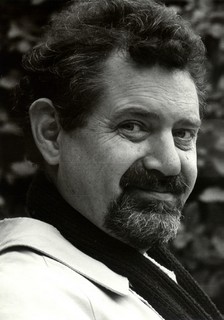
Poul Rovsing Olsen (1922–1982, Denmark) was born in Copenhagen, into a musical family. He earned a degree in music theory and piano from the Royal Danish Academy of Music (1946) and then went on to Paris to study with Nadia Boulanger and Olivier Messiaen (1948–49). He also acquired a law degree from the University of Copenhagen and worked during the 1950s at the Ministry of Education, on the protection of copyright in music. In 1977 he became chair-man of the International Council for Traditional Music. In addition to his many years of activity in the domain of music criticism, he also taught at Lund Uni-versity (Sweden) and the University of Copenhagen. He made significant achievements in ethnomusicology with his research of folk music in the Per-sian Gulf area, India, Egypt, and Greenland. Dealing with non-Western musical cultures made a significant impact on his poetics and compositional proce-dures. Many of his works are characterised by stylistic heterogeneity and the crossbreeding of various musical idioms. Olsen accomplished a rich and ge-nerically diversified compositional oeuvre – from solo, chamber, and orchestral works, to opera and ballet. During the 1950s, he was one of the first Danish composers to use the twelve-tone technique.
Without a Title, op. 72, was written in 1972 and dedicated to Mogens Ellegaard, “the father of the classical accordion”. The piece is extremely virtuosic, in the manner of a freely improvised fantasia, realised by means approximating neoclassicism. Although its harmonic lan-guage is “edgy” and progressions are presented in fragments, which are contrasting and mostly dissonant, the motivic work and melodic structures that are thereby generated direct the listener’s attention to striking figurations and complex polyphonic textures alternating on the basis of tension and release. In that sense, one might say that the piece achieves a balance between two extremes in its expressive reach, marked on the one hand by extended melodic lines and, on the other, dense harmonic passages that at times show traits of a chorale.


